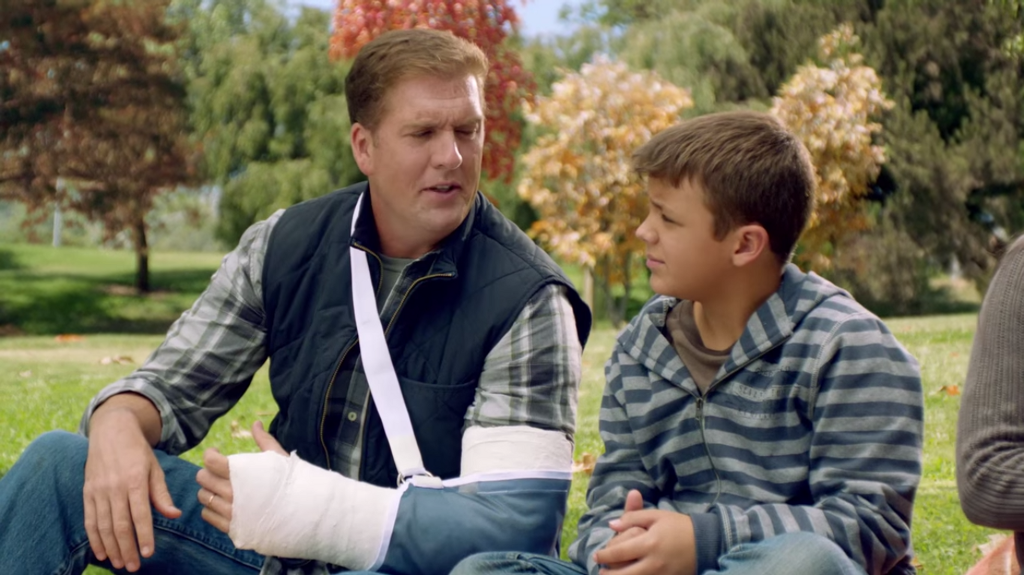What I Learned About American Anxiety While Watching Commercials During the Tony Awards

I don’t own a TV, and even when I go visit friends who have a TV we never watch the commercials; we always start on enough of a time delay that we can skip them and get right back to the show.
This doesn’t mean that I never see commercials, of course, but that I see different kinds of commercials. The kinds of things that run before YouTube videos and CNN articles; commercials designed for people who are sitting alone in front of laptops or smartphones and who have already inadvertently shared so many of their individual desires that the advertising can (within reason) be customized directly to them.
So the Tony Awards, which I watched via CBS Access, was the first time I’d seen television commercials in at least two years. It astonished me how anxious these commercials seemed; how someone, somewhere, assumed that everyone watching CBS that night would be worried about their health and their finances. (The Tony Awards themselves dealt with what many of us were actually worrying about that evening, thankfully.)
We’ll start with this commercial from Aflac, which touches right at the core of healthcare anxiety: If you need healthcare—and we all will—you aren’t going to have enough money to pay for it even with insurance. You’re going to lose everything, because your deductible is too high and your savings account barely has $400 in it. But it’s okay. We have a duck, and he’ll tell you what to do.
This commercial, titled “Rap in the Park,” has been around since 2011. It doesn’t pre-date the Affordable Care Act (which was signed into law in March 2010), but it does pre-date the health insurance exchange—which, unnervingly, suggests that nothing has really changed about insurance since the exchange became available.
More unnervingly, airing a five-year-old commercial suggests that someone said “That Hamilton thing’s about rap, right? We’ve got a rap!”
Moving on:
Gilmore Girls fans will recognize Keiko Agena in this commercial about wives who use their smartphones to find in-network urgent care clinics for their husbands, and this is the kind of future I both pictured and feared for Lane Kim: sitting on the sidelines, waiting to take care of Zack after he pole-vaults into a pool with his bros.
It is always women who are doing the caretaking in these commercials, even when the item being cared for is a car:
Which brings us to the most heartbreaking commercial of the evening. Wow. Okay. So this commercial is devastating to watch first because it addresses the fact that many of us either are or will be caring for aging relatives as they move through the stages of Alzheimer’s and dementia—and second because it is selling a drug designed to prolong those stages.
This commercial is just… I could break it into a million pieces and cut my heart open with each of them, and should I start with the fact that the loved one (another man, of course, being cared for by another woman) is given no voice, no perspective, at all? Everything in this commercial is about the caretaker “giving back” to the man who we assume is her father, but this version of “giving back” presents an extraordinarily sanitized version of Alzheimer’s caretaking in which the father appears happy to stand within the frame of family activities without having any needs of his own.
If you check out the online forums where actual caretakers discuss whether they should give their loved ones Namenda XR, their questions are primarily logistical and very specific: Will this stop my loved one from falling? Will it do anything about the verbal abuse? Will my loved one sleep through the night without waking up in confusion and panic? They also ask the difficult question that is at the unspoken center of this commercial: if my loved one is experiencing dementia-related confusion and pain, and if they are no longer able to self-advocate, do I want to give them a drug that might extend this period of confusion?
Yeah. Wow.
If all that anxiety makes you stress-eat—0r if your lack of sleep due to caretaking responsibilities spikes your body’s production of ghrelin and causes increased hunger—don’t worry, Fage is selling carrot-flavored yogurt now.
It’s so delicious it will make your body explode into beams of pure energy, which is exactly what you need to make it through the day without worrying how you’re going to both manage and pay for your loved ones’ healthcare.
Support The Billfold
The Billfold continues to exist thanks to support from our readers. Help us continue to do our work by making a monthly pledge on Patreon or a one-time-only contribution through PayPal.
Comments